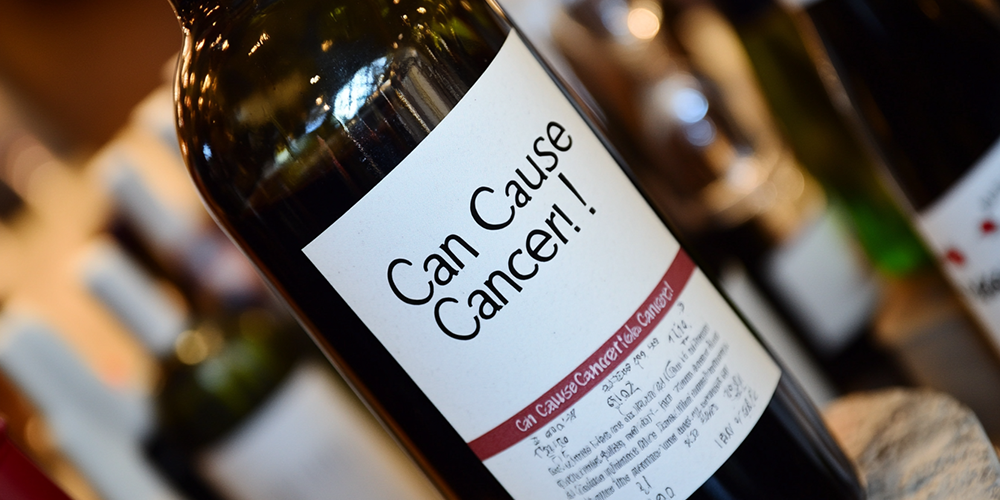CONSUMPTION: Therefore, the American government official calls for warnings on liquor bottles…
By Own Correspondent
The United States Surgeon-General Vivek Murthy has connected alcohol consumption to increased cancer risk and calls for updated warning labels on alcoholic beverages.
In his latest advisory, Murthy states that the links between cancer and alcohol may be significantly higher than was suggested in an influential report late last year.
“Alcohol is a well-established, preventable cause of cancer responsible for about 100 000 cases of cancer and 20 000 cancer deaths annually in the United States—greater than the 13,500 alcohol-associated traffic crash fatalities per year in the US —yet the majority of Americans are unaware of this risk,” Murthy said in a press release, adding that the report “lays out steps we can all take to increase awareness of alcohol’s cancer risk and minimise harm.”
At some point during the next few weeks or months, the US Department of Health and Human Services (HHS) and the Department of Agriculture (USDA) will, as they do every five years, publish the new edition of their Dietary Guidelines for Americans. It is expected that they may amend the 2020 advisory which recommended a maximum consumption of two drinks per day for men and one for women.
However, the task of the authors of the new guidelines will not have been made any easier by the publication in December last year of another reports which contradicts Murthy’s assertions.
A few weeks ago, the influential US National Academies of Sciences, Engineering, and Medicine (NASEM) declared that: “No conclusions could be drawn when comparing the risk of colorectal cancer for moderate alcohol consumers versus lifelong non-consumers, nor could an association be made between moderate alcohol consumption and oral cavity, pharyngeal, esophageal, or laryngeal cancers.”
On January 3, however, the US Surgeon General’s “Summary of Evidence of The Causal Relationship Between Alcohol Consumption and Cancer” included all four of these among its list of cancers whose risk is raised by drinking alcohol.
Murthy also included liver, and colorectal cancer, about which NASEM had stated “No conclusions could be drawn when comparing the risk… for moderate alcohol consumers versus lifelong non-consumers.” The only area in which Murthy and NASEM agree is about the link between alcohol and breast cancer.
The latest report from the US National Academies of Sciences, Engineering, and Medicine may reduce the likelihood of a WHO-style alcohol warning in the next US Dietary Guidelines.
Is it worth it?
People who take the trouble to read the Surgeon General’s advisory carefully will discover what the increased risk actually represents. Women who consume less than one drink a week have an 11% chance of getting breast cancer during their lifetime compared to 15% for those who consume one or two drinks per day. Some may consider that 4% increase, to be a risk worth taking in return for the pleasure of a lifetime of moderate drinking. Others may take a different view.
Crucially, for the industry, the Surgeon General proposes a number of “actions we can take today to begin reducing alcohol-related cancers in the US”. These, he said, included “updating the existing Surgeon General’s health warning label… to include a warning about the risk of cancer… [and making] the warning label more visible, prominent, and effective in increasing awareness about cancer risks”.
Unsurprisingly, perhaps, the Surgeon General makes no acknowledgement of the NASEM’s findings that moderate male and female drinkers have a lower risk of cardiovascular mortality. And that, compared with never consuming alcohol, consumption of two drinks per day for men or one for women, is associated with lower all-cause mortality.
The new advisory contains a series of recommendations, including an update of the warning label on beverages that contain alcohol, to increase cancer risk awareness. Labels currently posted on bottles and cans of alcoholic beverages warn about drinking while pregnant or before driving and operating other machinery and about general “health risks.”
Additionally, the advisory says, public health professionals and community groups should highlight alcohol consumption as a leading modifiable cancer risk factor and expand education efforts to increase general awareness. Health care providers should promote the use of alcohol screening and treatment referrals as needed. – Meininger’s/Medical X


































